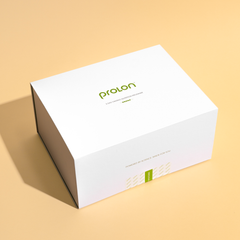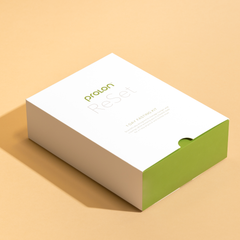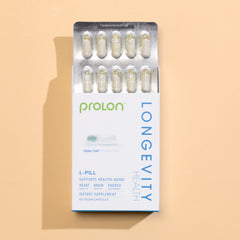
The Surprising Potential of Fasting Mimicking Diets (FMD) on Depression
While psychotherapy and medication are mainstream treatments for depression, they don't always work for everyone. This Mental Health Awareness Month, let's explore a promising complementary approach: fasting. Purposefully restricting food intake for periods of time may seem counterintuitive for your mental well-being; however, the Fasting Mimicking Diet (FMD) is generating buzz for its potential to amplify the effects of psychotherapy in battling depression.
The 5-Day FMD
Think of the FMD as a guided regimen that allows you to experience the benefits of fasting while still consuming specific micro- and macro-nutrients. Unlike water-only fasts which can leave you depleted, the FMD provides a science-backed formulated blend of nutrients delivered through food. This strategic nourishment "tricks" your body into a fasted state while avoiding the negative side effects of nutrient deprivation.
By flipping your metabolic switch into this fasted mode, the FMD is designed to promote cellular clean-up via autophagy and shift you into ketosis, a fat-burning state lauded for its brain-enhancing benefits. And the best part? You only have to follow the FMD protocol for 5 consecutive days per monthly cycle before returning to your regular diet.
The Surprising Study on FMD for Depression:
A groundbreaking randomized controlled trial published in the Journal of Clinical Psychology put the FMD to the test for depression. Twenty patients underwent 20 sessions of functional psychotherapy, a holistic mind-body approach. Half of the participants were also prescribed three consecutive cycles of the 5-day FMD regimen interspersed throughout their treatment.
The results were eye-opening. While both groups experienced relief from depressive symptoms post-treatment, those who combined psychotherapy with FMD saw significantly greater gains in self-esteem and psychological quality of life compared to psychotherapy alone.
Even more impressive - these added benefits stuck around during a 3-month follow-up!
Why the FMD May Amplify Psychotherapy's Impact
While this compelling pilot study was small in scale, the findings point to some powerful, potential avenues in which the FMD and psychotherapeutic interventions may be able to synergize:
- Self-Efficacy and Neuroplasticity Boost: Completing challenging but achievable FMD cycles could provide a purposeful sense of accomplishment and empowerment to fortify self-esteem.
- Neuroplasticity: Traditional water fasting has been shown to enhance neurogenesis and plasticity, priming the brain's receptivity to psychotherapy's reconditioning work.
- Gut-Brain Axis Optimization: The FMD may be able to trigger microbiome shifts that could rebalance the gut's biochemical axis, which is linked to mental health and emotional processing.
At L-Nutra, we pride ourselves on developing fasting solutions grounded in longevity research. As the first-of-its-kind trial on the FMD for mental health shows, the 5-day cycle may represent a powerful adjunct to maximize psychotherapy's impact. If you're looking to potentially enhance your mental well-being and support your journey through psychotherapy, consider incorporating the FMD into your wellness routine. Take control of your mental health today and discover the potential of fasting with food.













